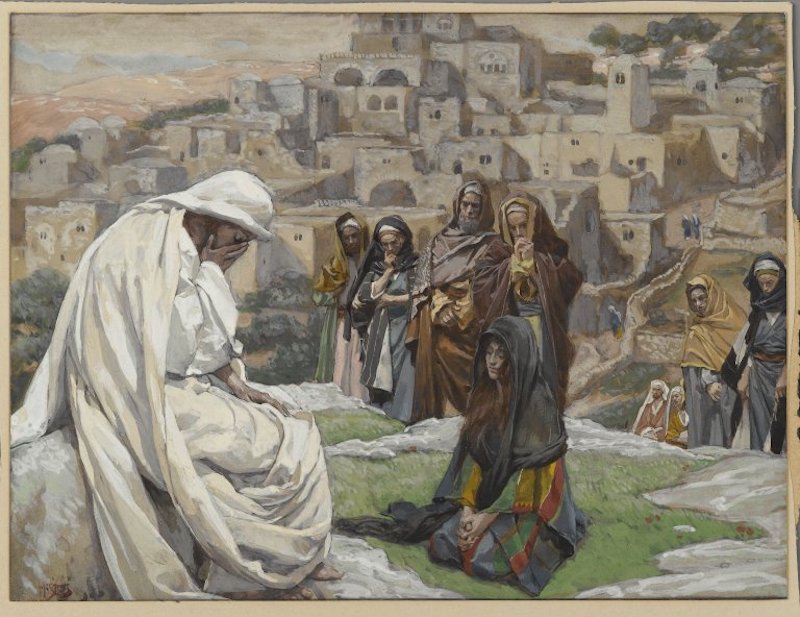I often listen to the radio in the car when I’m driving, always the classical station. I’ve been a fan since I was a child – an odd bird in a family that liked Country-Western (my brother), Lawrence Welk (my parents), and hymns/Gospel music (many other relatives). I own several hundred CDs of classical music, primarily Baroque religious works, and my iPod is loaded up with most of them. I used to listen to the iPod at work. Playing classical religious music was outside the range of tolerance at work, just opera or Taiko drumming would have been.
Today, while I was driving, the radio station began playing an aria, one of Luciano Pavarotti’s most famous solos, “Nessun Dorma.” Though I am not an opera fan, this aria (and maybe one or two others) never fails catch in my throat. I have no idea what makes me so sensitive to this piece when even some of my very favorites fail to cause tears to get no further than my eyelashes.
Tears are quite often a sign of sorrow, grief, physical or emotional pain. Babies will wail – not cry – at the top of their lungs, often without producing tears. Their wailing is a sign that something is not going their way and they would like it fixed quickly, thank you very much. Other tears are happy, like those of a bride’s mother at her child’s wedding. Proud parents cry at first communions, baptisms, graduations, and any time their children mark a special event or achievement. People cry at other special events, whether to mark horrendous tragedies or outstanding achievements. Birth, death, and all sorts of things between those two milestones are reasons for tears to flow.
Some churches take special notice of tears and why they are shed. Roman Catholics call it the “Gift of Tears” when someone is moved when the liturgy is so beautiful that they feel overwhelmed or particularly close to God. St. Ignatius was one such person. On a visit to Auschwitz, Pope Francis asked God for the gift of tears for all those put to death due to barbarity and anti-semitism. He wanted to show his repentance and desire for a world where anti-semitism and hatred will come to be as the Holy Trinity want it to be. Although not an official “saint,” Margery Kempe was singularly blessed with the gift of tears often and frequently very loudly when she contemplated her sin, the glory of God, and the redemption offered by Jesus. She was one of the more extreme cases, but many saints and Saints shed tears at prayer or in contemplation.
The Gospels claim Jesus shed drops of blood and sweat while he prayed at the Garden of Gethsemane, but would it not be possible that he shed tears of anguish also? We know he wept at the tomb of Lazarus and as he contemplated Jerusalem from the mountaintop. I’m sure there were other times as well. I wonder if he ever shed tears of frustration when people, even his disciples, didn’t get what he was trying to get across to them?
Being one who has not received the gift of tears, I often envy those who can seemingly shed them easily – at the drop of a sad movie ending or the thought of a loved one passing or who has passed. I choke up at some songs, the beauty of a cathedral or a sunlight-dappled forest, even watching a horse race. (Why a horse race? The animal is beautiful in motion and could so easily break down or be injured to the point of death.) Why can’t I at least leak a few tears when I see pictures of people suffering from famine, war, natural disasters, or plagues? I hate seeing children in need, elders in great pain because their children want every possible modern intervention to keep Mother or Dad with them just a while longer, or animals who have been the subject of cruelty some human being thought was fun. Things like these tear my heart and often drive me to prayer, but tears? Not a one.
Where do you experience the gift of tears in your life? Do you share tears with loved ones at family events? Do disasters causing significant loss of life affect you? Do beautiful things make tears well up in your eyes? What about when you think about your sins or guilt? Does the thought of the sacrifice of Jesus for those sins and guilt bring you closer to tears?
Tears can be cleansing, healing, and even uplifting. Even for adults, it’s okay to cry; we don’t have to be stoic about everything. Let God love you, beauty touch you, and relief wash over you. If Jesus could weep, why can’t we? I bet even God has shed tears from time to time. We have that capacity, and we are made in God’s image.
Think about it.
God bless.
Image: File:Brooklyn Museum – Jesus Wept (Jésus pleura) – James Tissot.jpg – Wikimedia Commons
Linda Ryan is a co-mentor for an Education for Ministry group, an avid reader, lover of Baroque and Renaissance music, and retired. She keeps the blog Jericho’s Daughter. She lives with her three cats near Phoenix, Arizona.

